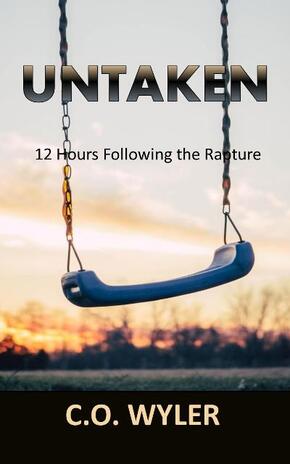There are so many things I love about this book, starting with the subject: What will it be like for those who are left behind when the Rapture occurs? What might they think about what has happened? How might they react?
What born-again Christian has not thought about these things in the face of beloved unbelievers’ stubborn resistance to the good news of Jesus Christ? Wyler tells us what she thinks, and I suspect she’s right.
To be honest, I didn’t like narrator Sarah Colton very much, but I think that’s because she reminded me of myself before I came to Christ (and sometimes since then, I’m ashamed to admit). She’s a self-absorbed feminist atheist, viewing the world through her own selfish eyes. Just one example: When a plane crashes near her home, the ambitious photojournalist grabs her equipment and races to capture the scene on video. Her motive? “This will make me famous. Sarah Colton has arrived …” (page 72).
The author’s presentation of Sarah is consistent from start to finish. More than once, I wondered how someone so familiar with what Scripture says about everything from salvation to the Rapture could also have such accurate insight into a feminist atheist’s thinking. It’s really a brilliant character sketch.
I also appreciate Wyler’s generous use of foreshadowing. It’s fairly subtle; there’s none of the obvious “you could hear her coming in her wooden shoes” foretelling. But it’s the sort of thing that makes this reader’s heart smile when it plays itself out.
Then there’s the pacing. It’s flawless. The author continually turns up the tension and then gives the reader a breather with detours into less intense territory. For instance, on page 75, Sarah is rushing out to capture the aftermath of the crash on camera. Her heart is pounding, and so is mine. She takes this opportunity to tell us about her witnessing the convenience-store shooting of the governor’s son. Not a pleasant diversion, to be sure; but it’s in the past and Sarah has clearly survived the incident, so it lets the reader relax for a few moments.
But not for long. Wyler ramps it up again in short order, keeping my pulse racing and my eyes leaping through page after digital page.
As a result, I found it difficult to set this book aside. That may be due in part to the author’s use of the present tense throughout. Interestingly, I’m not at all a fan of present-tense novels; in the past, it has always struck me as gimmicky. But not in this case. The present tense is integral to the story. And Wyler handled it so transparently that I didn’t even notice it until I was halfway through the book.
But perhaps my favorite thing about Untaken is Sarah’s voice. This book is not simply written in the first person; it is written to the reader. Sarah holds a running conversation with you from beginning to end. She asks you what you think, and if you saw, heard, or felt what she did. She wonders if you’re still with her, or have abandoned her, as of course you are free to do. She invites you to tell her what you would do if you were in her shoes.
She gets kind of personal, too. In the aforementioned scene when she’s racing to the crash site, she asks, “Are you keeping up with me? I do not know what shape you are in healthwise, but step it up as we must get to the scene before anyone else does.”
Sarah even admonishes the reader a time or two for failing to help her. “Are you here with me?” she asks on page 166. “But why do I bother asking you? You have been of no help since we started this relationship.”
It’s crazy and I found it endearing. Since there’s nothing new under the sun, as Solomon told us in Ecclesiastes, I suppose that other writers have pioneered this technique. But I’d certainly never seen it. In fact, I’ve never read anything quite like Untaken.
A bonus: Wyler closes with an interesting discussion of the choices she made in writing the story and an appeal for the reader to believe on Christ. She also includes Bible passages describing the Rapture and God’s plan of salvation.
Bottom line: This is an irresistible book that I think virtually any true believer would thoroughly enjoy--one that all unbelievers really should read and ponder, before it’s too late. Find it here. (The ebook is still free everywhere except on Amazon.)

 RSS Feed
RSS Feed